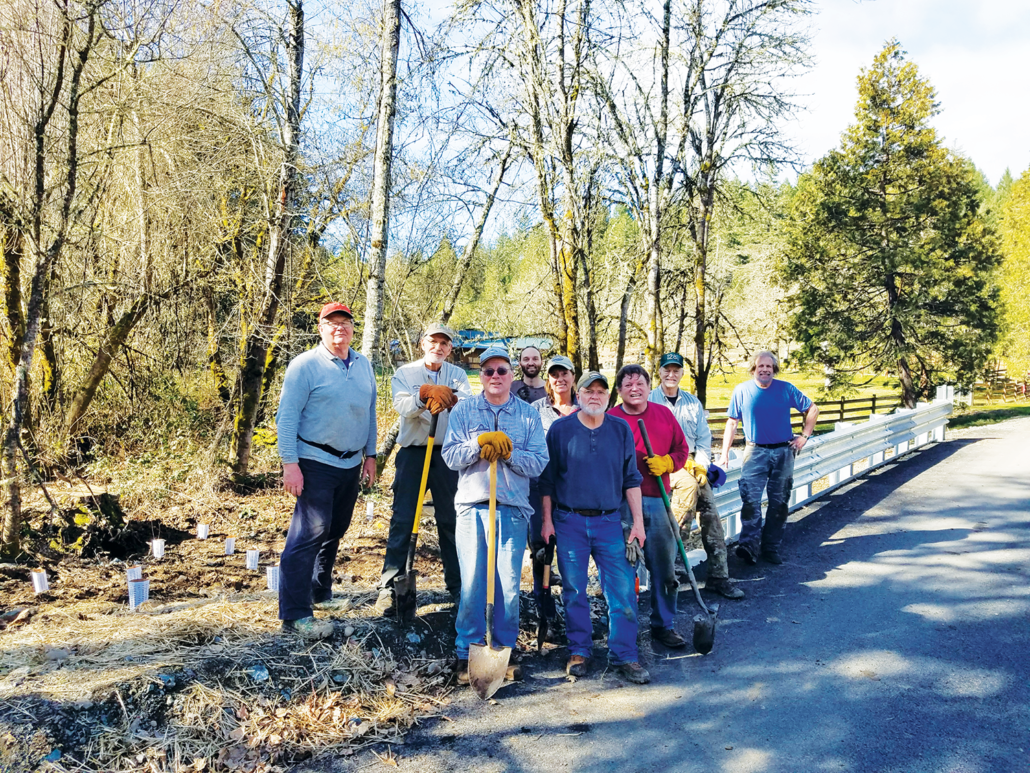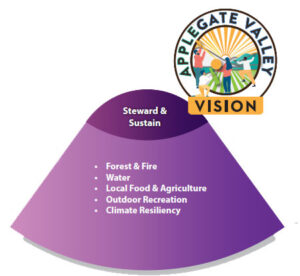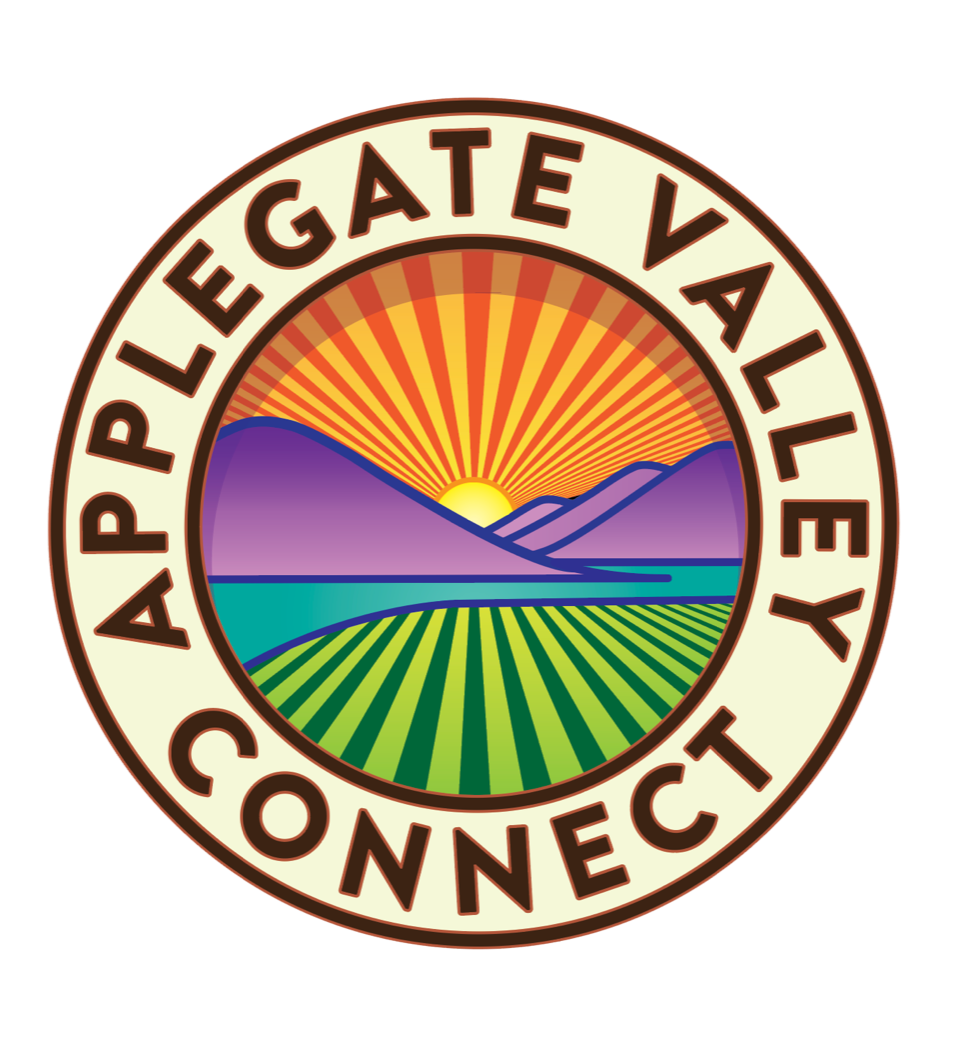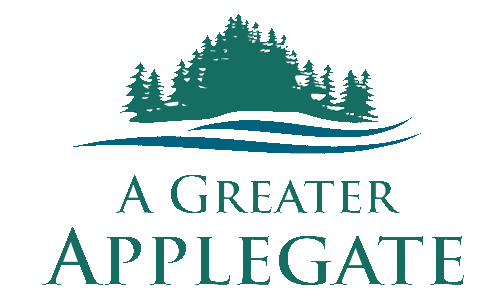On Forest Creek (see photos), an old diversion structure blocked fish from moving upstream and caused erosion on the landowner’s nearby road. With funding support from OWEB, Oregon Department of Fish and Wildlife (ODFW), Patagonia, Trout and Salmon Foundation, Resource Legacy Fund, Oregon Wildlife Foundation, and MRS, we constructed a bypass channel. Tommy Maddox of 4M Timber completed the work designed by engineer Joey Howard of Cascade Stream Solutions. The Bureau of Land Management (BLM) donated hazard trees, and Evan Short of Southern Oregon Bokashi and Kyle Krenzer of Elevation Organics donated soil and amendments for riparian plantings.
In Provolt, we’ve continued our partnership with BLM, restoring riparian habitat along the Applegate River with funding from OWEB and Title II funds. We also partnered with BLM on Powell Creek, where long stretches of the stream were devoid of large woody debris. As logs fall into streams they jam up, create scour pools, deposit spawning gravels, and slow the streamflow upstream of the trees. Without these instream logs, many stretches of Upper Powell Creek had become long riffles or raceways that filled pools and left little fish habitat. Funding and collaboration with OWEB, ODFW, and BLM, led by the efforts of Jonas Parker, helped us install a second phase of the project, another 32 structures in 2017 and 2018. Additionally, we partnered with a private landowner downstream to remove an abandoned dam and collaborated with mining claimant William Powell to insure our log placements were mutually beneficial for fish habitat and gold-mining objectives.
On Palmer Creek, we worked with USFS fish biologist Steve Brazier and Blue Ridge Timber Cutters to remove an abandoned diversion dam and lace logs throughout the stream channel. During firefighting operations on the Burnt Peak fire last summer, firefighters cut up many previously placed logs, destabilizing the fish habitat created by those logs. This summer we re-stabilized this situation before winter’s high water. Through our collaboration we also removed small abandoned dams on Humbug and Jamison creeks. We thank the landowners—Barbara Summerhawk, Chris Bratt, and Joan Peterson—for their support.

Volunteers on planting day at the Butcherknife Creek Project site.
Just off Redwood Highway on Butcherknife Creek Road (see photo), we replaced a dilapidated, large corrugated metal culvert—deteriorated to the point that the bottom looked like a cheese grater—that had become a barrier for juvenile and adult salmon and a safety hazard for residents and emergency vehicles. During the summer of 2017, Timber Mountain Construction replaced this barrier with a concrete bridge, and in early 2018 the APWC and SOFF planted over 100 native plants there. This project received funding from local residents, the Pacific Power’s Blue Sky Habitat Fund, OWEB (through salmon license-plate funding), and Otium Organics. Our partners on this project included BLM, USFS, ODFW and SOFF.
If you have an idea for a potential project or would like to discuss strengthening the wildlife habitat on your land, please contact Jakob Shockey, Restoration Program Manager, Applegate Partnership & Watershed Council, at 541-890-9989 or [email protected].
 Excerpted from the Winter 2018 Applegater
Excerpted from the Winter 2018 Applegater Here is some information about some of the Applegate Partnership and Watershed Council’s restoration projects:
Here is some information about some of the Applegate Partnership and Watershed Council’s restoration projects:



